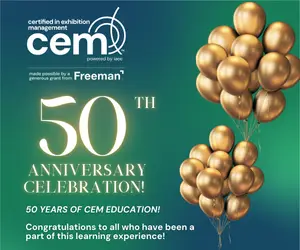Exhibitions and events continue to evolve at breakneck speed, driven by technological innovation and changing attendee expectations. Recent insights from show organizers reveal both the tremendous opportunities and persistent challenges facing industry professionals as they adopt new technologies intended to elevate their events.
The Communication Challenge: Breaking Through the Noise
One of the most pressing issues organizers face today is ensuring their messages actually reach and resonate with their intended audiences. Simply sending information isn’t enough because attendees and vendors are overwhelmed with digital communications, making engagement a significant hurdle. The solution lies in strategic personalization and repetition. Successful organizers are leveraging dynamic content to create tailored experiences for different audience segments:
- For attendees, this means personalized session recommendations and networking opportunities that align with their specific interests and professional goals.
- For exhibitors, it involves sharing relevant performance metrics, ROI maximization tips, and visually compelling booth spotlights that drive meaningful engagement.
The magic number for effective communication appears to be three. Industry experts recommend sharing key messages at least three times through different channels and formats to ensure proper absorption. This repetition isn’t about being redundant; rather, it’s about meeting people where they are and reinforcing critical information through various touchpoints.
Technology Gaps: The Search for the Holy Grail Solution
Despite rapid technological advancement, organizers continue to grapple with a fundamental challenge: no single platform adequately addresses all event management needs. Current solutions excel in specific areas such as registration management, exhibitor sales, booth coordination, mobile applications or educational content delivery, but significant gaps remain across the board.
This fragmentation creates a complex decision-making environment for organizers. The time investment required to research and evaluate new technology providers is substantial, and implementation timelines often discourage switching from existing systems, even when those systems have known deficiencies. The result is a reluctant acceptance of imperfect solutions that meet some needs while leaving others unaddressed.
To navigate this challenge, industry professionals recommend engaging with technology through hands-on experiences. Attending industry events like Expo! Expo! IAEE’s Annual Meeting and Exhibition, IAEE Event Tech Demo Days, and similar forums allows organizers to experience solutions firsthand rather than relying solely on sales presentations and marketing materials.
Measuring Success: Beyond the Obvious Metrics
Evaluating technology effectiveness requires a comprehensive approach that goes beyond simple usage statistics.
Post-event surveys remain crucial for gathering attendee and vendor feedback, but smart organizers are also monitoring staff adoption rates including app usage patterns, login frequencies and overall engagement levels. They’re also tracking attendee utilization across the entire event lifecycle – pre-show, during the event and post-show follow-up activities.
For exhibitors, success metrics include pre-show marketing engagement through apps or websites, appointment scheduling and attendee outreach activities and profile completion rates within event platforms. For example, chatbots can save an organization significant staff time by automating responses to common questions and freeing team members to focus on higher-value activities.
The AI Revolution: Personalization at Scale
Artificial intelligence is a game-changer for event technology, offering unprecedented opportunities for customization and automation. AI-driven segmentation is revolutionizing how organizers approach attendee experiences by analyzing preferences, behaviors and profiles to deliver highly personalized recommendations.
This technology enables event apps to suggest relevant sessions, exhibitors, and networking opportunities based on individual attendee interests and activity data. The result is enhanced engagement, improved satisfaction and more meaningful connections between all event stakeholders.
AI is also helping organizers bridge the gap between how they categorize information and how attendees actually think about and search for content. By refining existing categorization systems and uncovering previously hidden gaps, AI enables more intuitive and effective content organization that serves attendees better.
Looking Forward: Automation and Enhancement
The future of event technology lies in intelligent automation and cost-effective solutions that enhance rather than complicate the exhibition experience. AI agents are beginning to streamline complex workflows, identify upselling opportunities and guide participants through previously cumbersome processes.
Smart exhibition organizers are also developing AI-powered SEO strategies to improve attendee discovery and engagement, ensuring that valuable content and opportunities don’t get lost in the digital shuffle.
As B2B events continue to advance, the most successful exhibition organizers will be those who embrace technology as a tool for creating more meaningful, personalized and efficient experiences while maintaining the human connections that make the face-to-face marketplace truly valuable.


